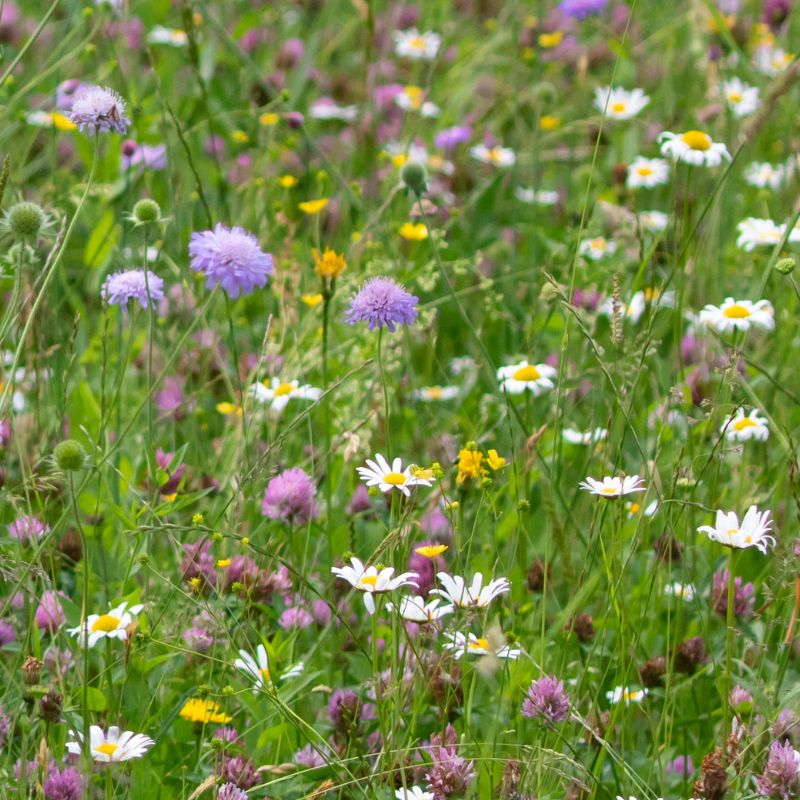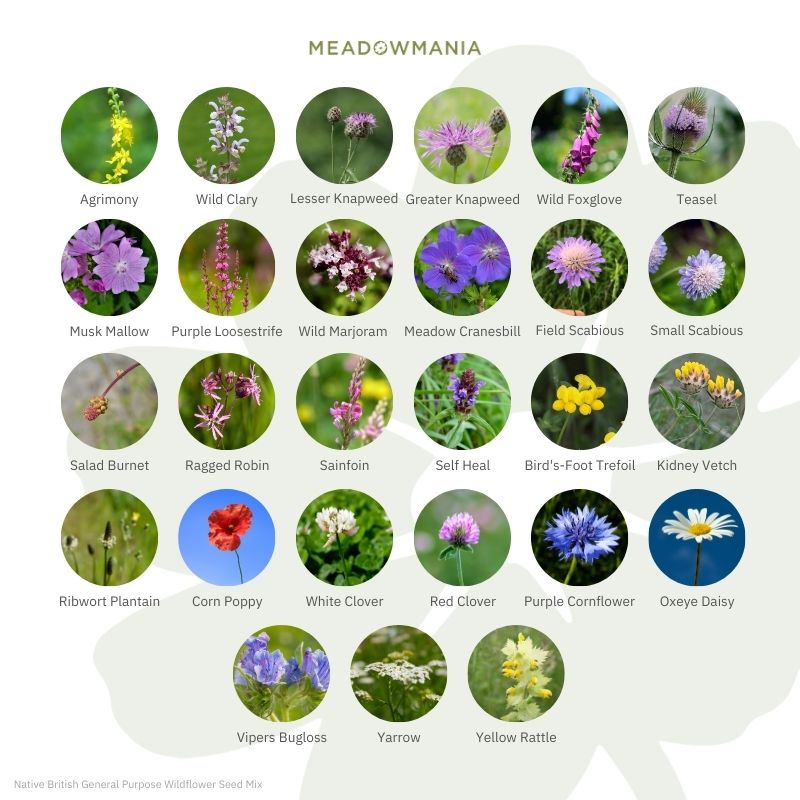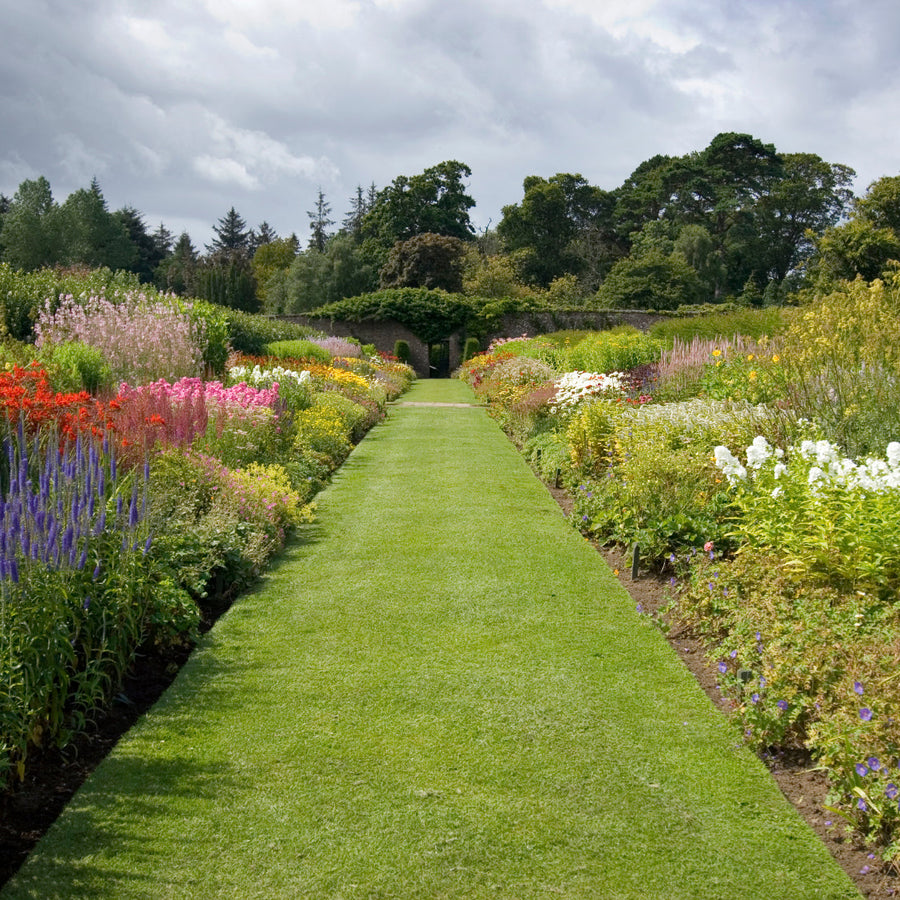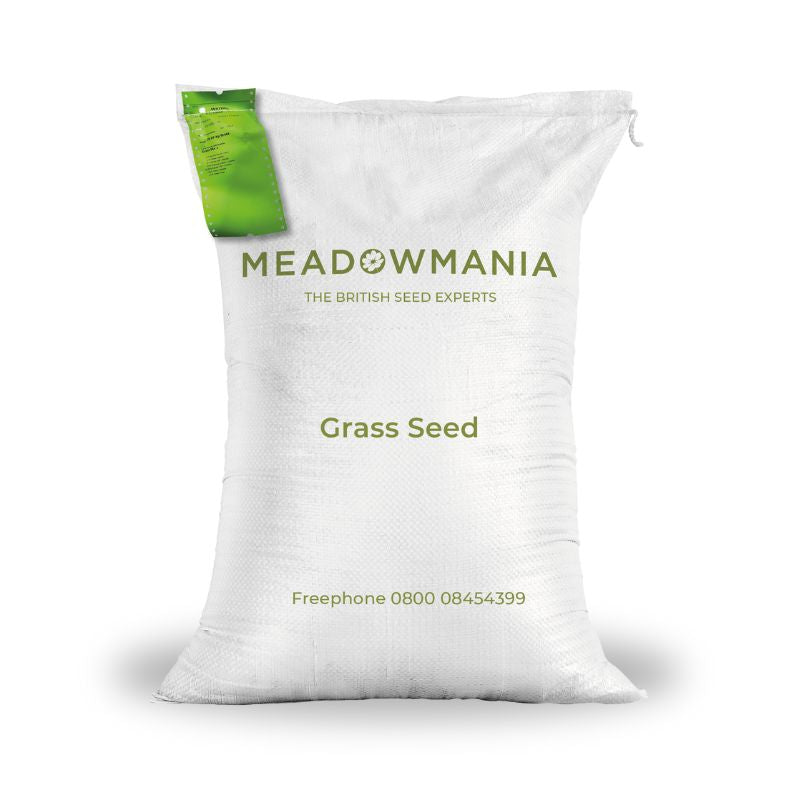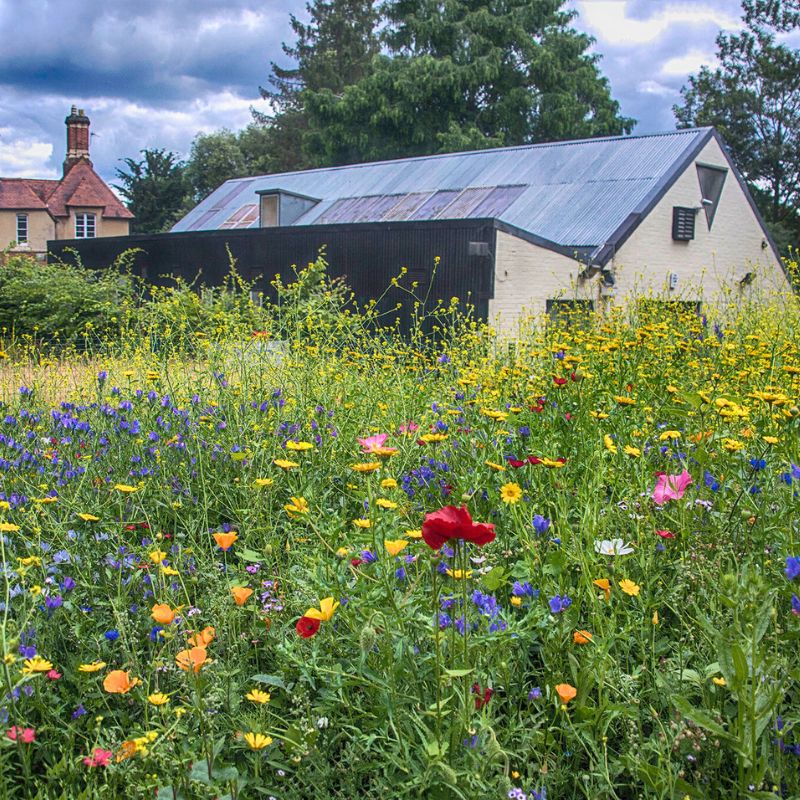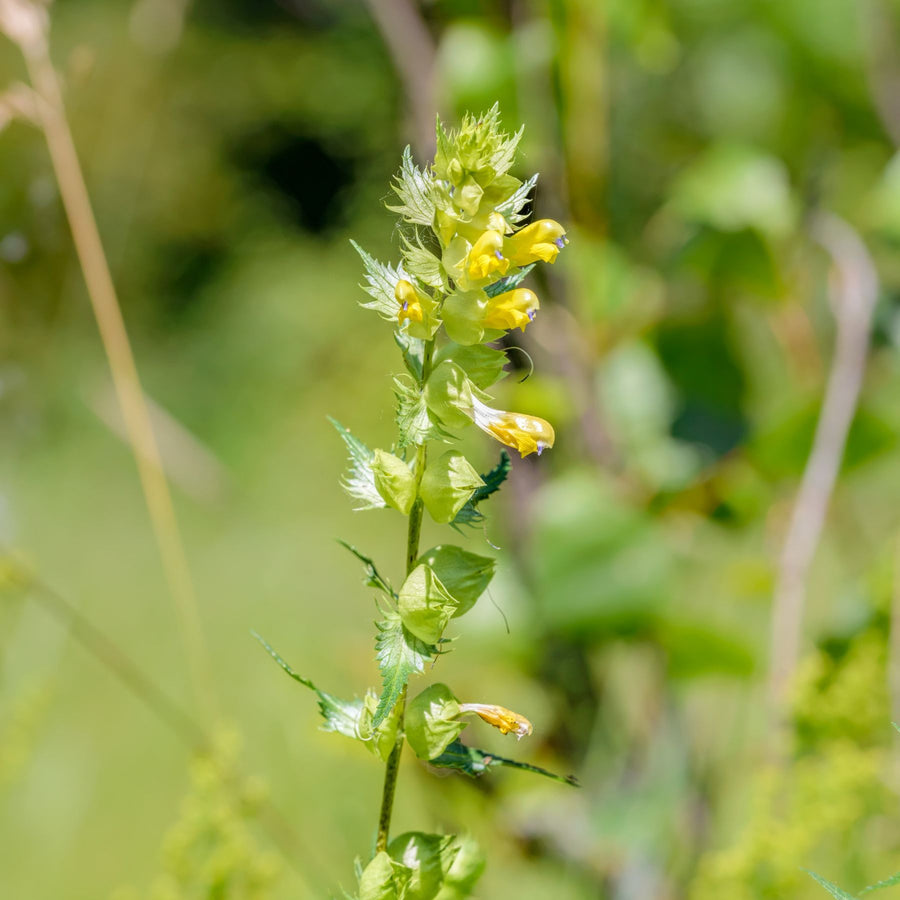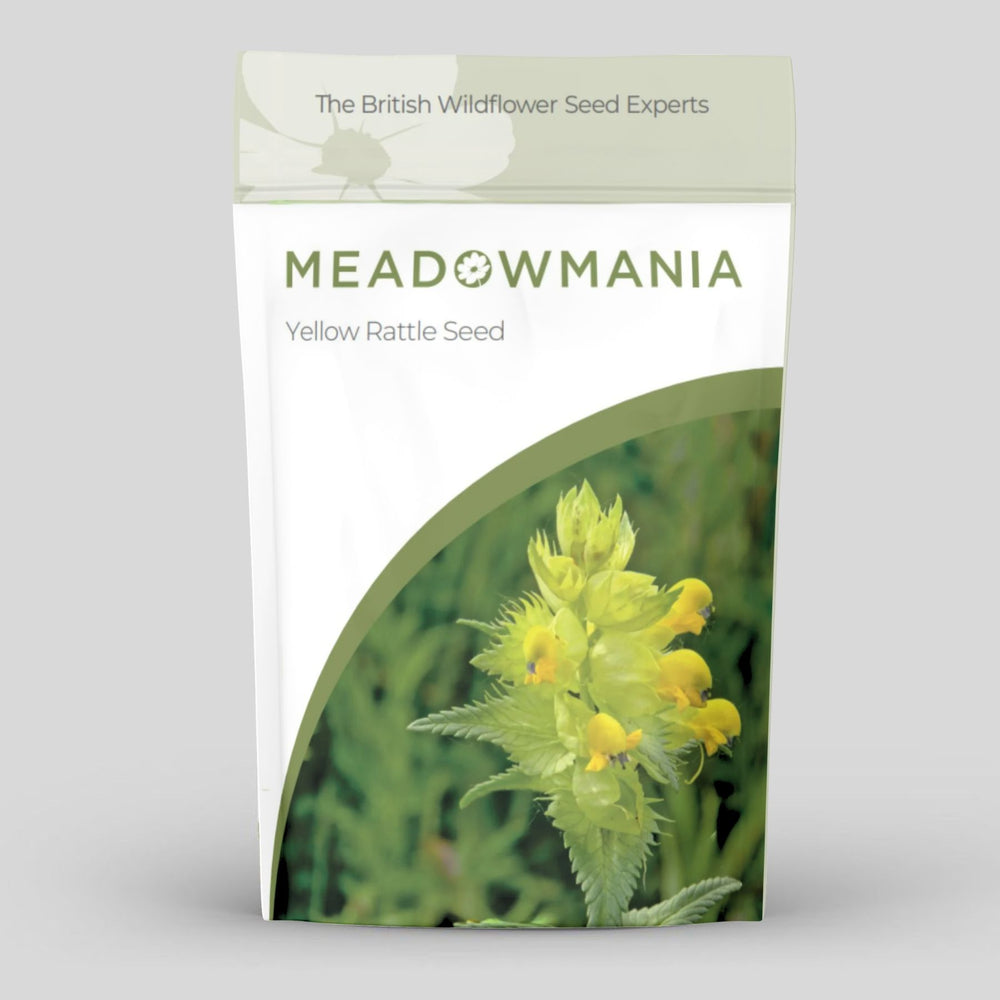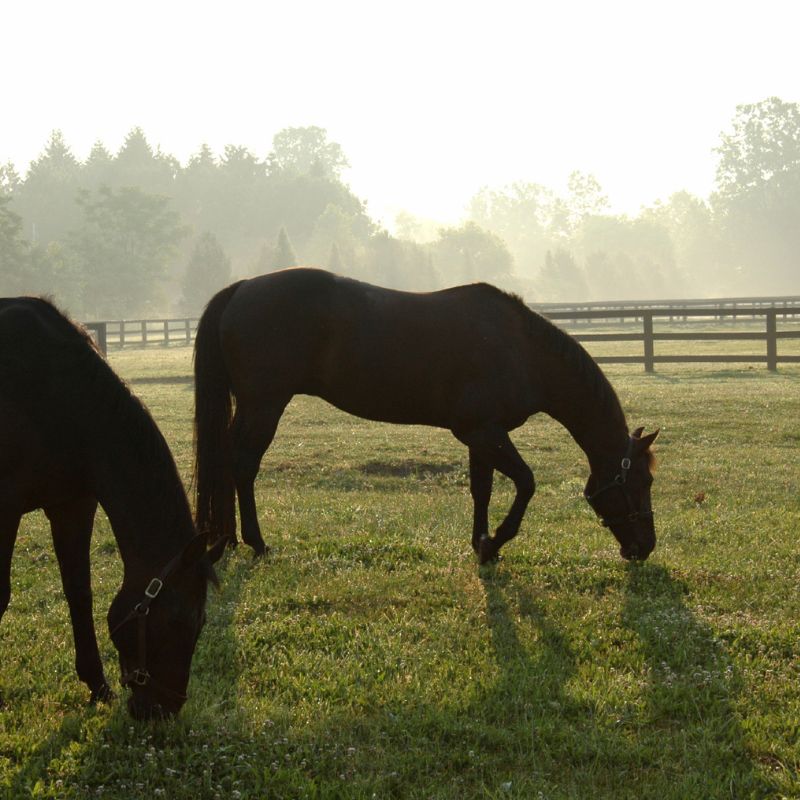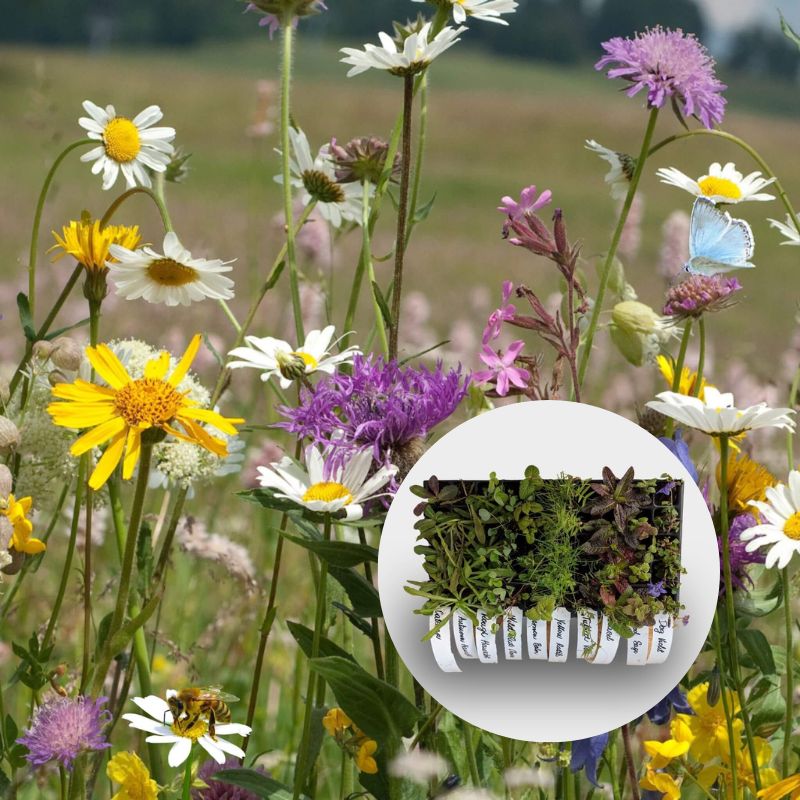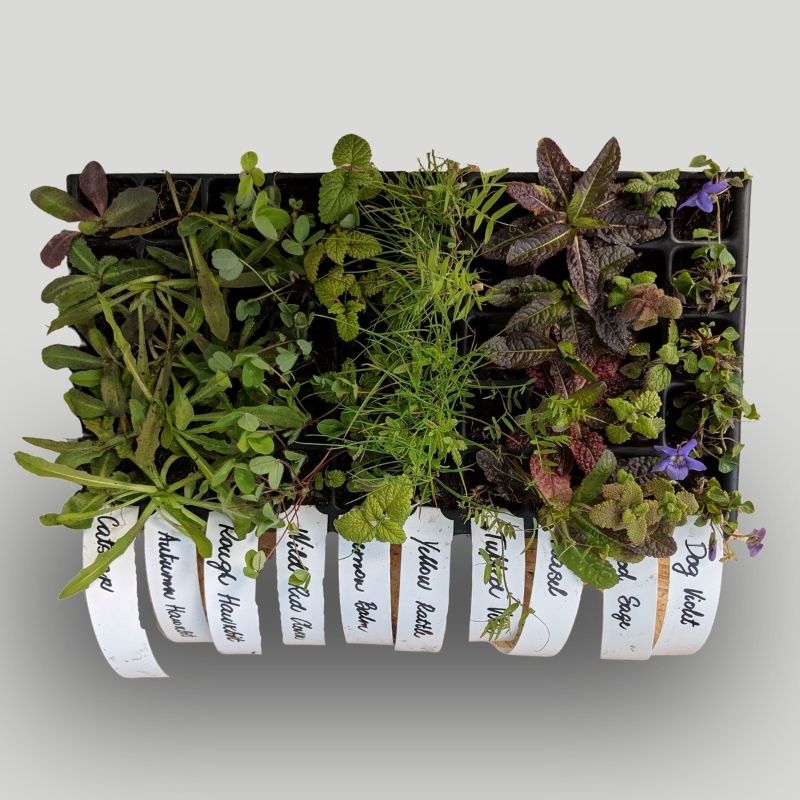
The Benefits of A Ryegrass-Free Horse Paddock
Creating A Species-Rich Paddock to Enhance Your Horse’s Health and Well-Being
Is your horse paddock in need of a make-over? Are you puzzling over which paddock grass seed to buy? Would you like to increase the species-diversity of your sward to provide balanced nutritious forage for your horse and pony and good hay production? When it comes to choosing the perfect paddock grass seed mix, why grow ryegrass-free?
Traditional grass seed blends for horse paddocks tend to include a large percentage of perennial ryegrass as this species is quick to establish and high in nutrients. Yet research has shown that rich ryegrass pasture, high in nonstructural carbohydrates (NSCs), or fructose as sugar, can be detrimental to your horse’s health and can cause issues such as stomach ulcers, and laminitis in horses that are prone to this condition.
Laminitis is usually caused by poor digestion from eating grasses rich in sugar. These high levels of sugar cannot be broken down properly by the horse’s digestive system and, if overeaten, can produce toxins and acids which cause the soft tissue within the horse’s hoof to swell and weaken.
A species-rich ryegrass-free sward in your horse pasture will reduce sugar levels to grazing horses and ponies, reducing the incidence of laminitis, and creating a sustainable ecosystem to support and maintain their dietary needs; herbs can be included for their vitamin and mineral content. Clovers, with the exception of black medick and trefoil species, are also high in NSCs and should be avoided if your horse is laminitic.

Our ryegrass-free horse paddock seed mixes are blended from a diverse range of grass species:
Natural Renovation Paddock Grass Seed Mix (NR)
Natural Horsemanship Long-term Grazing Seed Mix (NHLT)
Gold Standard Natural Paddock Grass Seed (GS)
Demeter Grassland Management Grass Mix (DGM)
Creeping red fescue (Present in: NR / NHLT / GS / DGM)
Also known as strong red fescue, the creeping roots of this grass enable it to remain green even in times of drought and help reduce trampling damage in wet conditions and lessen the risk of poaching. It produces a dense and hard-wearing sward which can tolerate close grazing.
Meadow fescue (NR / NHLT / GS)
Grows up early in the spring and provides early-season grazing. It is good for making hay. Meadow fescue is versatile and tolerates both drought and floods and grows well in acidic conditions. The deeper roots of this fescue help improve soil structure, aiding water retention and helping to make it more resistant to erosion.
Chewings fescue (NHLT / GS / DGM)
This is a fine-leaved, shade-tolerant grass which grows well in poor soil and in drought conditions.
Sheeps fescue (DGM)
This is a hardy and drought resistant species, and the finest-leaved fescue. It copes well with heavy grazing and provides low-growing cover on poor soils.
Smooth stalked meadow grass (NR / NHLT / GS)
This is a durable grass species whose creeping roots enable it to recover well from heavy wear. It is highly palatable to horses and ponies and tolerates close grazing.
Timothy (NR / NHLT / GS / DGM)
This is a very palatable grass species and is ideal for picky horses. Timothy is winter hardy and stays green longer than most grasses, making it ideal for hay production and late season grazing. It tolerates wet conditions and heavy soils and is very tolerant of acidity. Timothy has a soft texture and is a good choice for horses that need lots of roughage in their diet.
Cocksfoot (NR / NHLT / GS)
Also ideal for hay production and grazing, cocksfoot is palatable and can withstand heavy grazing; it should be grazed or cut often to remain leafy. Cocksfoot is frost hardy and grows up early in the spring. With deep roots, it is drought-tolerant, as well as tolerant of sandy and acidic soils.
Browntop bent (DGM)
This grass species grows well in low-fertility soils. It has low NSCs and a tendency to smother clover which can be advantageous in paddocks with laminitic horses.
Yorkshire fog (DGM)
This thrives on infertile and acidic soils where its seedheads are much enjoyed by horses and ponies.
As well as horse-friendly wildflowers and herbs:
Kidney vetch (GS)
This adds to the overall diversity of a grazing ley and is a good source of trace minerals.
Sainfoin (GS / NR / NHLT)
A natural wormer and a good source of condensed tannins which aid the digestion of protein, sainfoin is high in Omega-3 fatty acids which improve the resilience of the immune system. Sainfoin hay, also known as ‘holy hay’ or ‘healthy hay’, is low in sugar and starch and is particularly suitable for horses on a strict diet.
Ribwort plantain (GS / NR / NHLT)
A fast-growing, long-lasting wildflower, and a rich source of calcium and selenium, ribwort helps maintain a healthy digestive system. Its leaves are high in anti-inflammatory compounds making the herb effective for all types of inflammation.
Meadowsweet (GS)
Meadowsweet is a great natural alternative to ulcer treatments as well as being beneficial in the treatment of digestive and joint pain.
Lady’s bedstraw (GS)
This adds to the overall diversity of the grazing ley and is a good source of trace minerals.
Lucerne (GS)
A nutrient-dense legume, containing more digestible energy - more protein and calcium and fewer sugars and starches - than most grasses.
Sheeps burnet (GS / NS / NHLT)
Also known as salad burnet, this is drought tolerant with a long growing season. It is highly nutritious and an excellent source of trace elements.
Dandelion (GS)
An excellent source of potassium for horses. It’s a natural diuretic that cleanses the liver and can also be useful for easing chronic pain and inflammation. It is very nutritious and a great source of trace minerals and antioxidants.
Sheeps parsley (GS / NH / NHLT)
High in iron and vitamins A and C. It is useful to alleviate the symptoms of kidney and bladder complaints.
Fenugreek (GS / NS / NHLT)
A valuable digestive tonic aiding the digestive system in making better use of available food. It is highly nutritious and a good source of protein and fat.

Why species-rich swards are great for your horse or pony:
Horses are natural grazers and providing them with a diverse mix of forage options encourages their natural grazing behaviour.
Balanced Diet
Ryegrass-free grass seed for horses are formulated to mimic the diversity of plants found in a horse’s natural habitat. This diversity ensures that horses receive a balanced diet with the right mix of nutrients and vitamins and minerals. Our mix of wildflowers and perennial forage herbs will further improve the palatability of your horse and pony’s grazing pasture and provide trace minerals beneficial to their general health and well-being.
Digestive Health
The high-quality forage provided by a ryegrass-free, species-rich sward supports healthy digestion and gut function in horses and can help prevent digestive disorders such as colic and gastric ulcers.
Reduced Risk of Laminitis
Our ryegrass-free grass seed blends are carefully selected to minimise the risk of laminitis by including low-sugar grass varieties.
And why they are great for your paddock:
Improve Soil Health
Ryegrass-free horse paddock seeds contain species that are well-suited to the local climate and soil conditions. By fostering healthy root systems and microbial activity in the soil, these grasses help improve soil structure, water retention and nutrient cycling.
Erosion Control
The deep root systems of certain grass species included in the species-rich seed mixes help stabilize the soil, reducing erosion and run-off. This is particularly beneficial in paddocks with sloped terrain or areas prone to heavy rainfall.
Resistance to Weeds and Pests
A diverse mix of grasses and legumes can outcompete weeds and resist pest infestations, reducing the need for chemical herbicides and pesticides in your paddock.
Increased Biodiversity
By supporting a variety of plant species, ryegrass-free paddock seed mixes promote biodiversity in your horse paddock, creating a more resilient ecosystem that can better withstand environmental stressors.
Ryegrass-free horse paddock seed mixes offer a holistic approach to paddock management that benefits both the environment and the horses that inhabit it. By selecting paddock grass seed blends that prioritise sustainability, biodiversity, and nutritional quality, horse owners can create a healthy and thriving ecosystem that supports their animals’ physical and behavioural well-being.
So, the next time your paddock needs a makeover, consider these long-term benefits to your horses and your paddock, and grow ryegrass-free.


